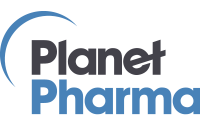Let’s be honest— while the idea of a new dream job may cause a flutter, there are very few people that can genuinely say they get excited about job interviews. First, there’s the upfront effort needed to research the company, craft thoughtful questions, and practice your elevator pitch. Then, even just the idea of the interview itself – meeting new people, being “on” for an extended period of time, and selling yourself – can be truly frightening to some. Preparation is the best way to keep anxiety away and let your confidence shine.
Here are seven pointers to help ace your next interview and put your best foot forward.
1) Do your homework
This goes for knowledge of the organization, the position, and of course, the people you are meeting with. Be sure you have a solid understanding of the position’s responsibilities and if you need clarification, don’t be afraid to ask questions! Don’t forget to do your research on your interviewers, as well. A quick LinkedIn search can go a long way. Maybe you’ll discover you and the interviewer both graduated from the same university. This is a great way to create a common ground and help you stand out against other candidates.
2) Never underestimate the power of looking and feeling good
Even if the company is known for their its laid-back, jeans and t-shirt attire, it doesn’t mean you should go into your interview with the same mentality. Dressing for the occasion is key to showing your potential employer that you are serious about the job and can suit up (literally in some cases) when need be. If you are video interviewing, it may seem strange putting on a button-down shirt, dress, or accessories, but it’s important. Make sure your outfit is crisp and clean and that you are well rested. Feeling good can really boost your confidence which will help you shine during your interview.
3) Be courteous to everyone you during all your interactions
Remember the HR rep or administrative assistant you saw only as a gatekeeper? That’s a big mistake. You never know how everyone is connected. You may have done a killer job during your interview but the second you were unprofessional, short or dismissive to someone who had seemingly no part of the process, you may have ruined your chances with a great organization.
If you are meeting on site, be aware of your surroundings, not just in the office, but leading up to it. Don’t cut off anyone while rushing into the parking lot or push by someone getting off the train. Don’t loiter in the lobby on a personal call or checking social media. Hold the door for everyone you come across and smile, even if behind a mask. You never know who’s listening or watching. Your interviewer may not walk by at the wrong moment but who knows if another employee isn’t standing within earshot. Be cautious of your etiquette at all times.
4) A good connection – and lighting!
Assuming you will be having your first interview via video, ensure that your wifi connection is solid and check – and re-check – your lighting and audio. Both can make or break a video experience and you want to ensure yours is set up for success. Also critical – know exactly how to connect to the meeting. If it’s using a platform that you’re unfamiliar with, download it in advance and see if you can set up a free account to test the system. Ensure your name displays properly and if you are using a background image, that it is professional and not distracting.
And, speaking of distractions, do whatever is possible to hold your interview in a private location. This may be hard if you are working from home with partners, children, roommates or pets, but do what it takes. Not only will this present a professional image, but it will also help with any nerves. Knowing you won’t be disturbed will allow you to concentrate on answering questions and showcasing your expertise.
When it’s time for your meeting, log in 10 minutes beforehand to troubleshoot any issues and to be ready and waiting when your interviewer arrives.
5) Play it cool
It’s very easy to become fidgety (play with your hands, your hair, rub your neck) when you’re nervous. Indirect body language is something that an interviewer notices and that you might not recognize yourself. Here’s an idea to rectify this issue: try recording yourself and a friend in a mock interview (this can be good for practice in general). You’ll see your body language firsthand and hopefully correct anything that could be considered negative by the interviewer.
6) Ask questions
You should always ask the common interview questions like, “What’s your favorite part about working here?” or “Can you describe your organization’s training program?” but try taking this a step further and think outside of the box. Ask questions that an interviewer wouldn’t expect and would show them that there’s more to you than what meets the eye. Asking position, industry or company specific questions can show that you’ve done your due diligence and are knowledgeable about the organization and this particular role. And, always, ask if there are any areas of your background or experience that you could clarify or address.
7) Follow-up thoughtfully
A thank you email is standard post-interview practice. But providing something additional isn’t as commonplace. Think about the conversation with your interviewer. Did you share a common affinity for the local sports team? Send a link to a twitter profile you follow that has the inside scoop. Did your interviewer express interest in a particular software that you’ve used, and they haven’t? Attach an article outlining the specifics of the platform. Or, include an e-card link to Starbucks expressing how you can’t wait to share your first cup of coffee as colleagues. Very rarely do interviewers forget about the candidates that went above and beyond by being thoughtful. It goes a long way, believe me.
By following these 7 tips, a job isn’t guaranteed but it will sure help your cause, boost that confidence factor, and get you a step closer to accepting that dream job with an amazing company. Oh, and don’t forget to relax. You’ve already proven yourself to be a viable candidate by your resume and any initial phone conversations. Now it’s time to really ‘wow’ them. Go out there and show them who you are and why you are their ideal candidate!
Photo credit: Canva
by Rebecca Pesavento, Associate Director of Recruitment, Planet Pharma
How to Create an Effective Pharmaceutical Resume
Your resume is often the first impression you make on a prospective employer in the pharmaceutical industry, so it’s essential to ensure it effectively showcases your skills, experience, and qualifications. Here are some tips for creating an effective pharmaceutical resume that stands out from the competition: Tailor Your Resume to the Job: Customize your resume…
Planet Pharma EU’s October MVP: Mona Azhari
We’re highlighting some of the amazing people who make up our Planet Pharma. Today, let’s get to know Mona Azhari with our Planet Pharma EU team. Name: Mona Azhari Job Title: Recruitment Team Lead How does it feel to be recognised by your colleagues and what was your secret to success this month?…
Planet Pharma EU’s September MVP: Alastair Aitken
We’re highlighting some of the amazing people who make up our Planet Pharma. Today, let’s get to know Alastair Aitken with our Planet Pharma EU team. Name: Alastair Aitken Job Title: Principal Recruiter How does it feel to be recognised by your colleagues and what was your secret to success this month? Feels…



